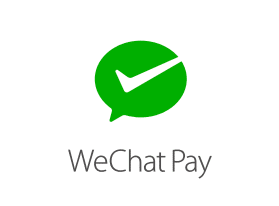
In the ever-evolving world of finance, digital payment systems have become an indispensable tool for people around the world. One such system that has gained immense popularity in recent years is WeChat Pay, the payment system integrated into China’s most popular messaging app, WeChat.
The story of WeChat Pay
Launched in 2013 by Tencent, WeChat Pay has grown rapidly and now boasts over a billion active users. Initially, the payment system was designed to facilitate peer-to-peer transactions among WeChat users. However, it has now expanded to a wide range of businesses, including online and offline retailers, transportation services, utility payments, and much more.
WeChat Pay has been successful in China, where the mobile payment market is booming. It’s a popular payment system for daily transactions, and its integration with WeChat has made it the preferred payment method for millions of people in the country.
In 2019, WeChat Pay launched in Japan, and the company has also partnered with various payment systems to facilitate cross-border transactions. These moves have helped WeChat Pay expand its reach and compete with other payment systems that are looking to expand globally.
The success of WeChat Pay has also attracted attention from other tech giants, and many have launched their own payment systems. For example, Google launched Google Pay in 2015, and Apple Pay was launched in 2014. These payment systems have become increasingly popular, and they are slowly gaining ground in the payment system market.
Competition from Alipay, VISA, Meta and other providers
Despite WeChat Pay’s success, it still faces stiff competition from other payment systems, notably Alipay, the payment system operated by Alibaba. Both WeChat Pay and Alipay are widely accepted in China and have been instrumental in driving the country’s digital payment market.
Outside of China, WeChat Pay and Alipay face competition from other established payment systems like VISA and Mastercard. However, WeChat Pay and Alipay have an edge over these services due to their integration with China’s e-commerce ecosystem.
With the advent of digital currencies and the rise of mobile payments, competition in the payment system market is expected to intensify further. Meta, the parent company of Facebook, has also recently launched its payment system, Meta Pay, which is expected to be a game-changer in the payment system market.
Conclusion
WeChat Pay has revolutionized the payment system market in China and has become a way of life for millions of people in the country. Its integration with WeChat, coupled with its user-friendly interface, has made it a popular payment system for daily transactions.
However, the payment system faces tough competition from other established payment systems like Alipay and VISA, and the rise of new payment systems like Meta Pay. With innovation and collaboration, WeChat Pay will undoubtedly continue to evolve and remain a leader in the payment system market.

